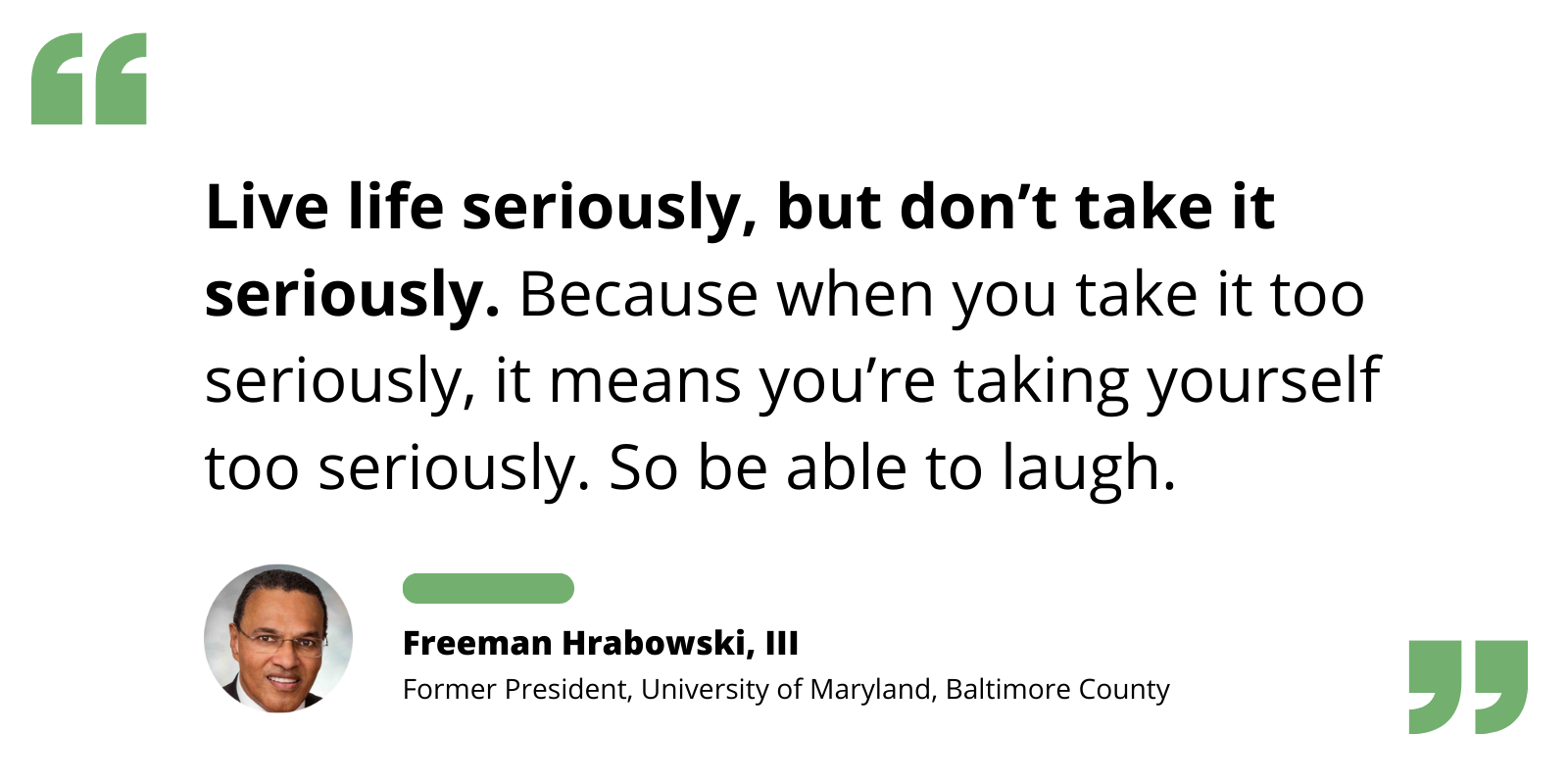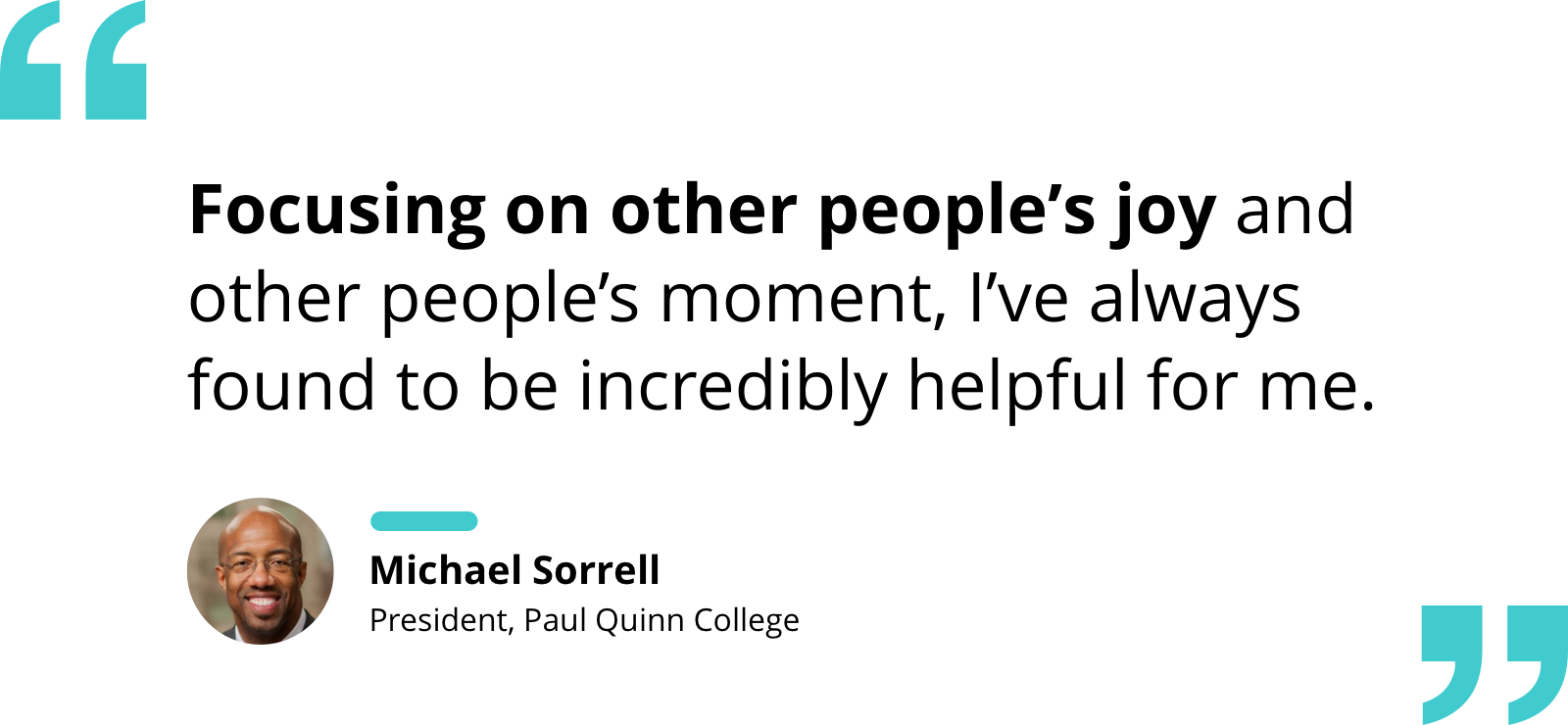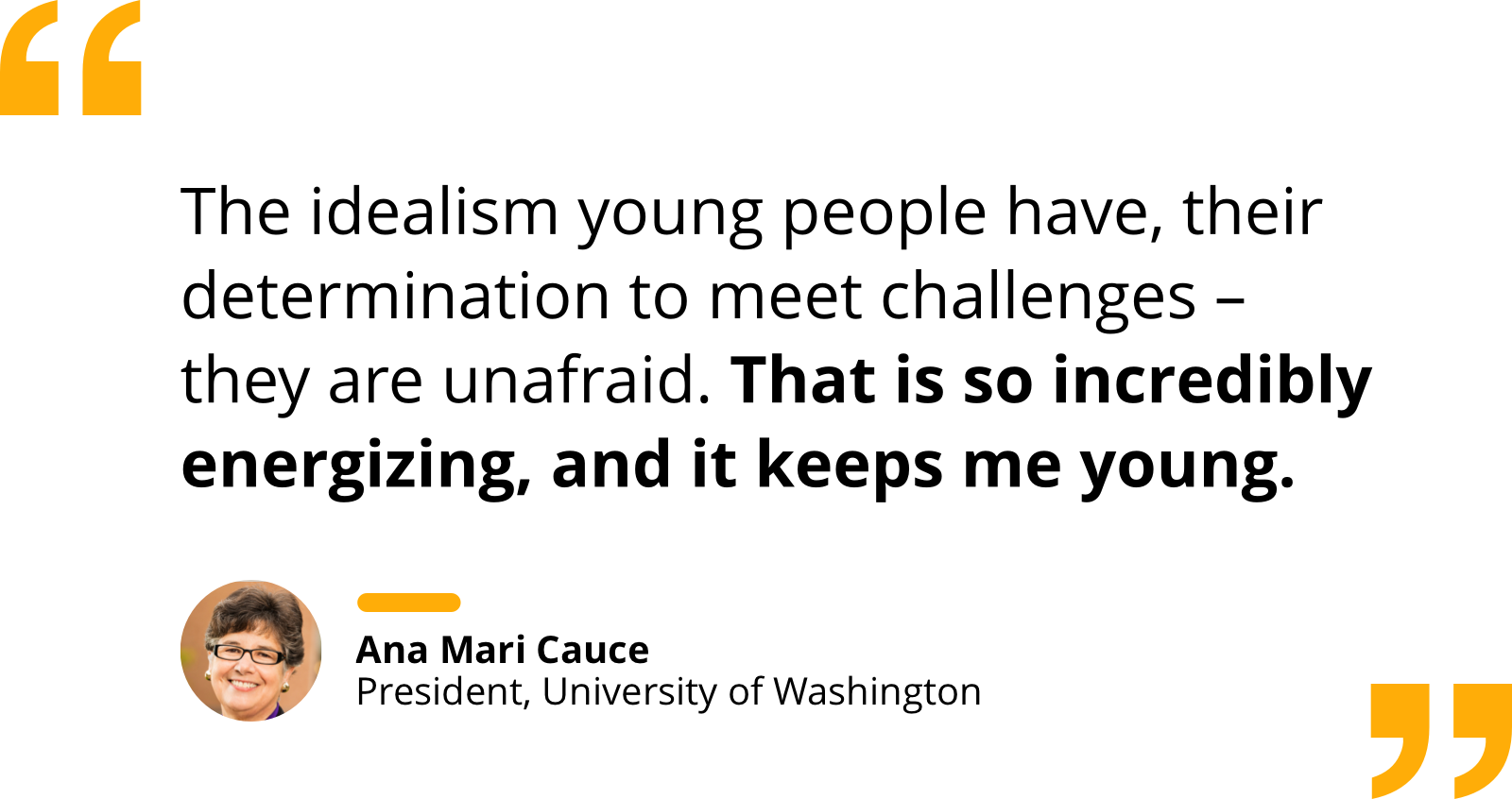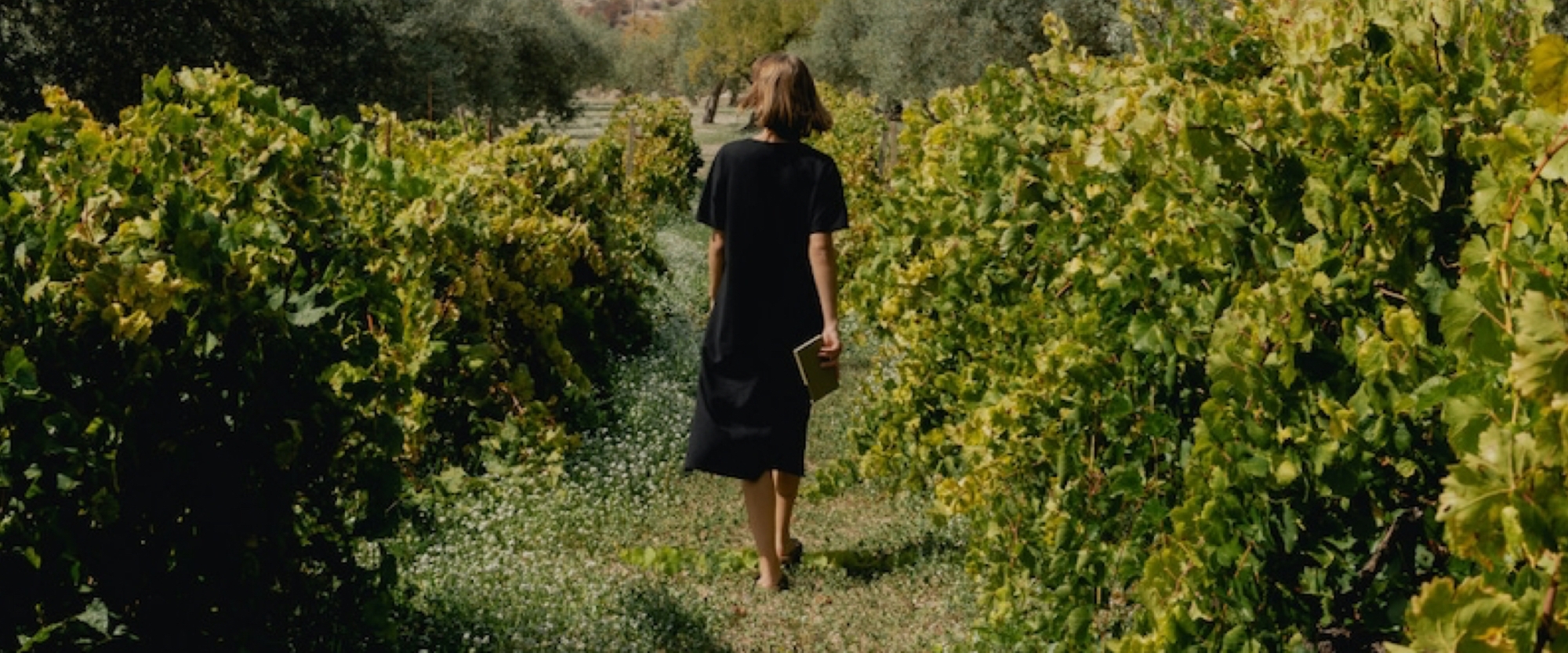Burnout is a real concern for higher education leaders. With so many people looking to you for direction and inspiration. Surrendering to mental exhaustion diminishes your ability to serve them. Once the new academic year's first blush of excitement wears off, burnout looms as you realize that you're in it for the long haul. To help you navigate this moment, we offer words of wisdom from a variety of higher ed leaders who've joined us on our Innovating Together Podcast.
Take Some "Me Time"
Despite the tremendous, nonstop responsibility of running an institution, ensuring student success, and advancing the best possible vision for higher ed, everyone needs to step back from all the pressure with a little "me time." It's important that you don't feel guilty about this.
1. "On my desk, I have 20 gracious ways to say no, because I want to say yes, but the fact is that I need a Sunday nap every Sunday. I think that everybody is happier when I am not irritable and tired and hungry. As much as I love this job, because the work is just joy to me, it is not my life. I have a whole life." - Valerie Sheares Ashby (President, University of Maryland, Baltimore County)
2. "Art can make us feel stronger, powerful, faster, more precise, better. It’s creativity and it’s human connection we can engage with as extensions of each other to do something good in the world." - Gabrielle Starr (President, Pomona College)
3. "Live life seriously, but don’t take it seriously. Because when you take it too seriously, it means you’re taking yourself too seriously. So be able to laugh." - Freeman Hrabowski III (Former President, University of Maryland, Baltimore County)

Nourish Your Inner Life
To successfully fight burnout, sometimes it's necessary to go deeper. These leaders revealed the self-care practices that help them rejuvenate and restore their best self.
5. "Social media can be a mean place. Every year during Lent, I give up social media because I need that cleansing." - Walter M. Kimbrough (President, Dillard University)
6. "I have learned to meditate, to create a space where nothing can get in for some amount of time, which usually brings me closer to my values right after I come out of a meditation." - Michael Rao (President, Virginia Commonwealth University)
7. "My Peleton has really helped me tremendously to sweat out my frustrations, think about things, and get my mind together." - Daria J. Willis (President, Howard Community College)
Focus on Other Individuals
While burnout may be a personal issue, combatting it in solitude isn't the only cure. Sometimes the welcome presence of others can lift our spirit to break us out of that downward spiral.
8. "My old tendency was to start every meeting with the agenda. My tendency today is like, 'How are you doing? How are you in this moment today?' I think that's partly a reflection of the world we find ourselves in. I think it's the effects of the pandemic." - Paul LeBlanc (President, Southern New Hampshire University)
9. "If you can have constructive criticism given to you, then when you give it back, it will be understood that it is not a one-way street. It starts creating a culture that, when something's wrong, it's okay to say it." - Javier Reyes (Former Interim Chancellor, University of Illinois, Chicago)
10. "We’ve created a safe space where people can talk about, 'I am struggling, I am sad, I am scared.' And I want people to know that I will hear them. Also, focusing on other people’s joy and other people’s moment, I’ve always found to be incredibly helpful for me." - Michael Sorrell (President, Paul Quinn College)

Love Your Institution
For leaders who don't have the bandwidth to disengage from the day-to-day, broadening their focus to embrace the entire institution makes burnout less of a concern. Watching plans and decisions turn into processes and outcomes can be exciting, deeply gratifying, and beneficial to everyone.
11. "U.C.F. is a young institution, and that has created a can-do attitude. I just can’t say enough good things about the people that we have here, their ability to accept change, to say, 'Let’s make things happen.'" - Alexander Cartwright (President, University of Central Florida)
12. "We have more capabilities than we had before. You look at people like Louis Pasteur and other scientists that were able to step through time. We're gonna have that again, and those things are gonna happen. All that stuff is very inspiring to me." - Michael Crow (President, Arizona State University)
13. "Many years ago, I said, 'I don’t know if we can take a vacation.' My wife said, 'You need to take a vacation because everyone watches you. If you don't take a vacation, they think they shouldn't either.'" - Kim Wilcox (Chancellor, University of California, Riverside)
Focus on the Students
Finally, let's remember that higher education exists for those who come to be educated, which is why some of our leaders have cured their burnout by simply tuning into the students.
14. "I realized that the curriculum was exactly the same as it had been 25 years earlier. So we did something really basic. We bought 10 pizzas, and we put 20 students on a couch and said, 'Just tell us what you would like to see if you were a freshman coming in to this university.' And they laid out a pretty simple plan." - Taylor Randall (President, University of Utah)
15. "The kind of idealism that young people have, and their determination to meet a whole range of challenges head on – the pandemic, environmental challenges, systemic racism – they are unafraid. And that to me is just so incredibly refreshing, and so energizing, and it keeps me young." - Ana Mari Cauce (President, University of Washington)

16. "We know that if we can’t meet students where they are, we have to change the paradigm from 'Are our students college-ready?' to 'Is our college student-ready?'" - Marcia Ballinger (President, Lorraine County Community College)
Burnout is a natural human reaction to ongoing, unrelenting demands on our attention and energy. And higher ed leaders, for all their accomplishments, are only human, too. We hope that some of the perspectives and practices mentioned here are just what you need to refresh your outlook.
Note: The interviews cited in this blog were drawn from the Weekly Wisdom Series and originally aired between April 20, 2020 and April 20, 2023 as part of the University Innovation Alliance’s Innovating Together Podcast, created in partnership with Inside Higher Ed.

